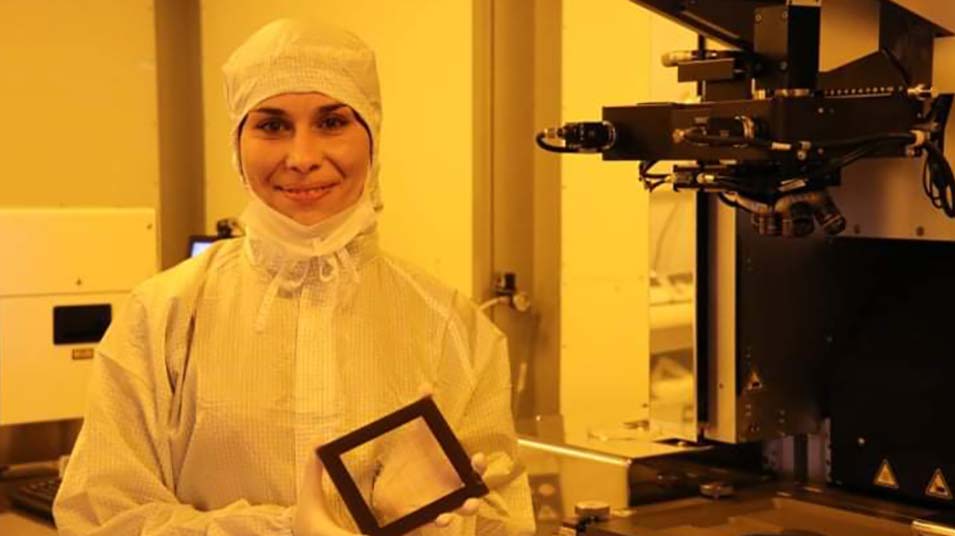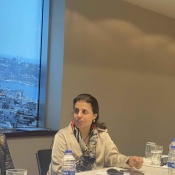Dr. Ghada Dushaq, groundbreaking physics researcher, paves the way for women in science
Dr. Ghada Dushaq, the Birzeit University alumna who’s doing pioneering research in nanoelectronics and photonics, serves as a role model for thousands of Palestinian girls who wish to study and research in science, technology, engineering, and mathematics.
Her perseverance and dedication helped her not only break into a highly competitive field — one in which women are vastly underrepresented — but also carry out groundbreaking research that has won her the coveted 2021 OWSD-Elsevier Foundation Award for Women Scientists in the Developing World.
In honor of the 2021 UN International Day of Women and Girls in Science, we are highlighting parts of Dushaq’s illustrious career, at Birzeit University and abroad, as a celebration of someone who broke the glass ceiling and produced research at the cutting-edge of science.
Following her older sister, who majored in mathematics, Dushaq studied mathematics and physics at Birzeit University, earning excellent grades and making the Dean’s List for the entirety of her four-year journey. After completing her bachelor’s degree with distinction, she was awarded a scholarship by the German Academic Exchange Service (DAAD) to pursue a master’s degree in physics from the University of Jordan.
After earning her master’s degree with flying colors in 2012, Dushaq taught for a year at Birzeit University’s Department of Physics, leading beginner and advanced courses and lab sessions. She then started her Ph.D. in interdisciplinary engineering at the Masdar Institute of Science and Technology (now Khalifa University) as part of a joint program with the Massachusetts Institute of Technology in the U.S.
As part of her Ph.D., Dushaq researched low-temperature techniques to grow germanium on silicon using radio-frequency plasma-enhanced chemical vapor deposition, focusing on how the grown germanium layers can be used to fabricate metal-oxide-semiconductor capacitors and photodetectors on CMOS-compatible platforms.
Dushaq’s Ph.D. dissertation, which she completed in 2017 and which was published in the peer-reviewed journal Thin Solid Films, serves as the basis for her current work as a post-doctoral researcher at New York University Abu Dhabi. There, she is developing new germanium-based materials to improve the speed of optical communication systems as part of the university’s Photonic Research Group.
As of early 2021, Dushaq has written and co-authored more than 35 papers in internationally known journals such as Mechatronics, AIP Advances, Superlattices and Microstructures, and the Journal of Applied Mathematics and Physics. For her efforts, she has received international awards and accolades such as the International Association of Advanced Material’s Scientist Medal in 2018, the 2020 Falling Walls Lab prize, and the 2021 OWSD-Elsevier Foundation Award for Women Scientists in the Developing World — the second Palestinian ever to win this award.
For Dushaq, the awards that she had received serve as a testament that women can excel in any field or discipline, whether in science or humanities; in academia, or the industry. The key, she emphasized, is willingness and perseverance.







